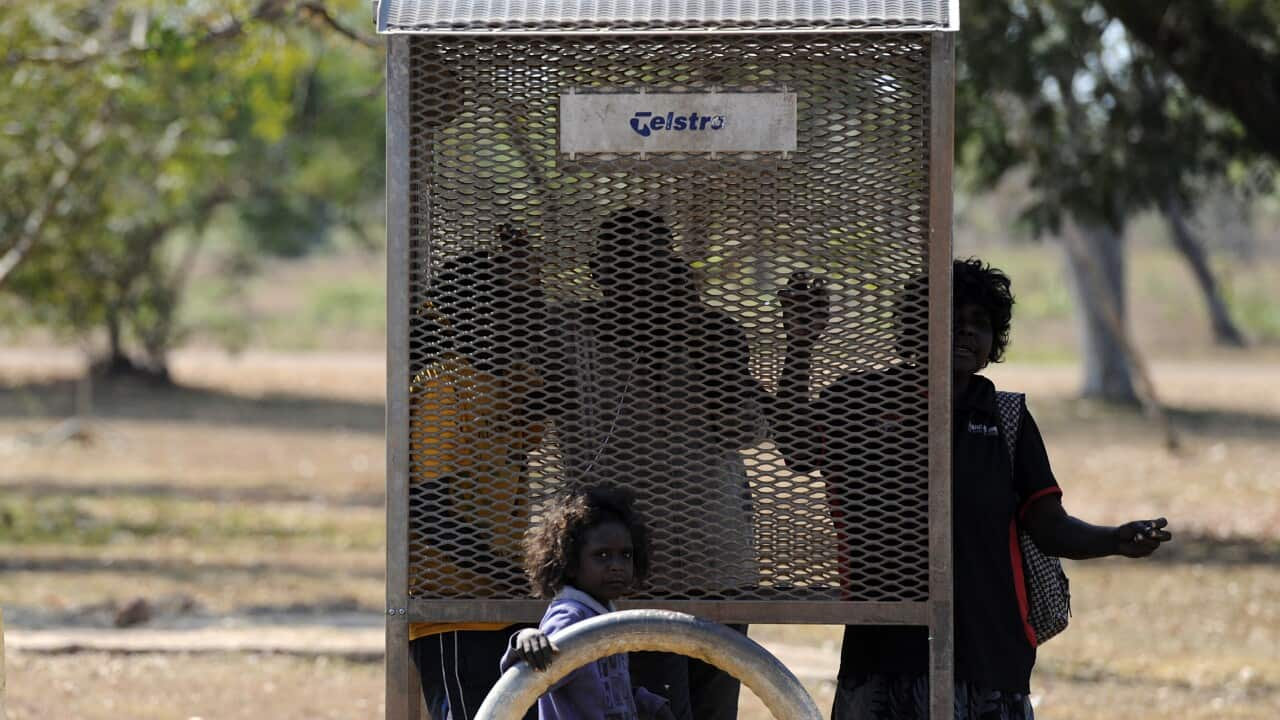Advocates say telecommunications outages are putting lives at risk in some of Queensland’s most remote communities.
Telstra continues to come under fire after a recent 40-hour outage mid-January meant people could not make calls to the emergency triple zero line, an occurrence all too familiar to Cape York Peninsula and Torres Strait communities.
At the same time last year, the region lost services for four days.
This week, under pressure from media, the telco has admitted it hasn’t been forthcoming with details surrounding the recent event.
Chairperson of the Torres Strait Regional Authority Pedro Stephen AM said reliable coverage is critical in an emergency.
“Isolated, remote communities depend on and deserve reliable phone and internet coverage,” he said in a statement.

Napau Pedro Stephen AM
A matter of 'life and death'

Telstra has recently upgraded it’s tower on Waiben. Credit: Carli Willis
“It's really clear that this is actually a matter of life and death,” she said.
One of the most striking and shocking stories that we were hearing from paramedics, domestic violence workers and others who respond to people in emergencies, was that people can't make call outs.
Under the Universal Service Obligation (USO) agreement with the federal government, Telstra is responsible for ensuring 24-hour free access to emergency service numbers.
In the event mobiles are not working, Telstra’s public payphones are expected to bridge the gap.
But Ms Williams said they aren’t the solution.
“If someone is experiencing domestic violence, they're going to need that phone immediately,” she said.
“If someone is experiencing a cardiac arrest, they can't walk to the nearest payphone to call triple zero.”
Concerns over the outage prompted the federal Torres Strait Regional Authority and a federal MP to call meetings with the provider over the matter.
It comes as the federal government launches its tri-annual telecommunications review this month.
Telstra’s story changes

The outage affected Queensland’s most remote communities.
Directly after services were restored, Telstra apologised for the outage and blamed a “direct” lightning strike at its Coen site “on Friday”.
This week, after local media exposed details surrounding the outage Telstra had omitted, the telco admitted services failed when the generator at the site ran out of fuel.
Regional General Manager for North Queensland, Rachel Cliffe, also later conceded that the time of the lightning strike is actually not known.
“There was a number of incidences that affected the power in that region over the previous weeks, including the ex-tropical cyclone Jasper,” she said.
“The generator at Cohen was fully fuelled [however], it ran out of fuel more quickly than we forecast.”
She said investigations into the incident were ongoing.
Ms Cliffe maintains that Telstra were unable to reach the site on Friday or Saturday due to bad weather, which she said closed roads and prevented helicopter access.
“A helicopter hire company would not fly [Saturday] because of the weather.”
Telstra has repeatedly refused to divulge the time it sent a request to the helicopter operator.
Resilience work needed
Ms Cliffe said Telstra were working on resilience projects to reduce the frequency of outages.
“We're creating additional pathways, so we can reduce that site having that big impact further north,” she said.
“Coen went out and impacted all the sites and network sites North of Coen.
“If we lose one site, [the new technology] will bunny hop that [site] and continue having our telecommunication services working further north.
“We should have that work completed by mid this year.”
But ICAN said they’re concerned about Telstra’s promise to switch off the 3G network on June 30.
“The other thing that we heard, which is a real concern, is that because the 4G network is not strong enough, people revert to the 3G network,” Ms Williams said.
“We don't have confidence that the 4G network is going to support people adequately.”
Ms Cliffe said Telstra would switch over all locations that are on 3G to 4G before the older generation network was shut down.
Meanwhile in Seisia, NBN Co have temporarily lifted restrictions on the use of a community wi-fi service at the town hall, making it available 24/7.
NBN Executive Manager Indigenous Affairs, Che Cockatoo-Collins, said the decision to open up the service was in response to calls from the community.
“This means the service is now available 24 hours a day, enabling access to online support services and helping people keep in touch with family and friends,” he said.













